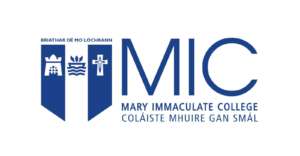Course Description
Professional Doctorate in Educational and Child Psychology
Mary Immaculate College
The Doctorate in Educational and Child Psychology (DECPsy) is a highly sought-after three-year, full-time professional training course for candidates interested in pursuing a career as an educational psychologist. This course will equip candidates with the necessary competencies to work in a range of autonomous and collaborative professional roles that are performed by educational psychologists (EPs) in a variety of contexts and with a range of client groups. The DECPsy builds on the highly successful MA in Educational Psychology. The PSI regulates training in psychology in Ireland and recognises the highest standards of postgraduate education and training in professional educational psychology. As a new professional training course, application will be made to the Psychological Society of Ireland (PSI) for accreditation of the DECPsy. The overall aim of the DECPSY programme is to enable trainee educational psychologists (TEPs) to effectively integrate theory and practice and become skilled and accountable professional practitioners. The doctorate programme will enable candidates to acquire an advanced knowledge and understanding of psychological theory, methods, evidence, research and practice. Moreover, it will provide candidates with the ability to apply psychological methods, insights and interventions in work with a wide array of clients, problems and contexts.
| College Name | Mary Immaculate College |
| Course Category | Education |
| Course Type | Classroom Based |
| Course Qualification | Doctoral Degree |
| Course Location | Limerick, UK |
| Delivery mode | Classroom based |
| Course Start Date | 1st September 2017 |
| Course Fee | Annual Fee €8,920 - Tuition Fees, the student contribution charge, the student centre levy and other charges are subject to change each year. |
| Course Duration | Three year full time |
| Course Times | The professional doctorate has a nominal value of 270 ECTs. The programme includes a combination of taught modules, professional placements and research. Taught Components: The programme is sufficiently flexible in content and structure to adapt readily to current and future needs and to the emergence of new knowledge in educational psychology and related fields. Taught modules will be typically delivered by qualified educational psychologists (EPs) and EP practitioners, in four day blocks over the first two years. In addition to taught modules, a variety of workshops and seminars are organised for trainees and delivered by experienced practitioners e.g. Cognitive Behaviour Therapy, Video Interactive Guidance, Assistive Technology, Dynamic Assessment. One day per week is normally assigned to study. |
| Awarding Body | University of Limerick |
| Title of Awarding | Professional Doctorate |
| Entry Requirements | By the closing date for applications, applicants must have: 1. A minimum upper second class honours (2.1) degree in psychology or an equivalent psychology qualification, recognised by the Psychological Society of Ireland or equivalent, as conferring eligibility for Graduate Membership. 2. An equivalent of two year's relevant full-time experience working in the field of education and/or psychology. Please note, periods of continuous professional experience of less than three months full-time employment will not count towards the two years minimum experiential requirement. Additional Desirable Qualifications and Experience A majority of successful applicants to date had more than the minimum requirements. Additional desirable qualifications and experience include the following: • Additional relevant academic qualifications in psychology and/or education. • Additional and varied work experience; work with children, special groups, specialist teaching or care work. • Research expertise as demonstrated by the completion of higher degrees with research components or involvement in research activities. |
| Career Path | The overall aim of the DECPSY programme is to enable trainee educational psychologists (TEPs) to effectively integrate theory and practice and become skilled and accountable professional practitioners. The doctorate programme will enable candidates to acquire an advanced knowledge and understanding of psychological theory, methods, evidence, research and practice. Moreover, it will provide candidates with the ability to apply psychological methods, insights and interventions in work with a wide array of clients, problems and contexts. |

